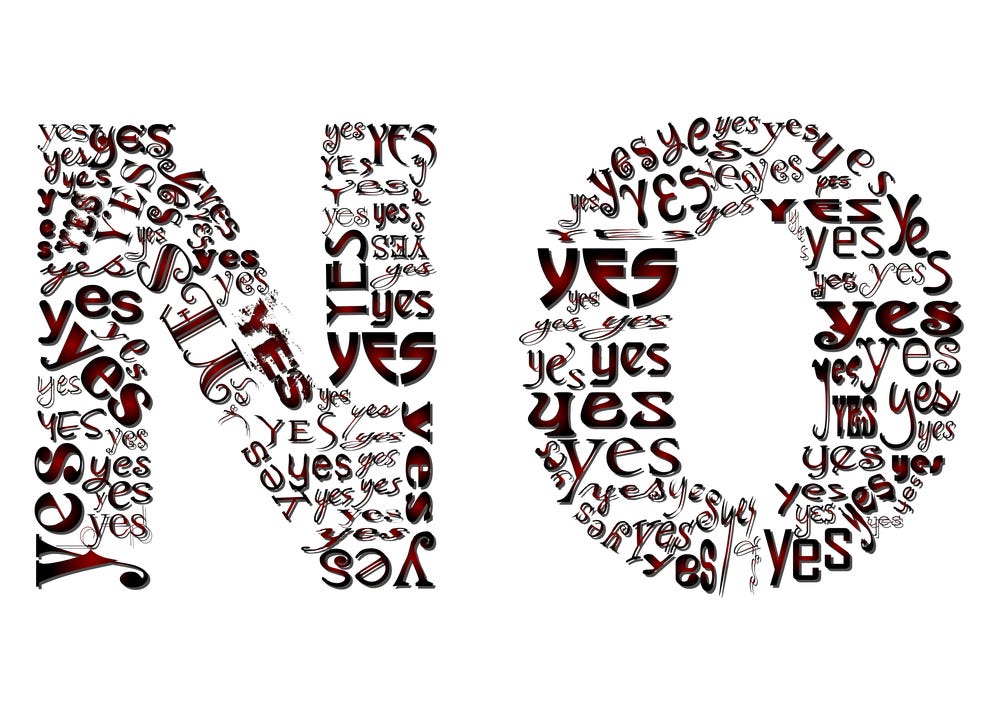
Simple steps to neuromal health (published on Towards Data Science here)
Get in touch: nick.mayhew@alembicstrategy.comIn Re-coding your own neurome and Take Care of your Neurome, I discussed the idea that mind is the emergent property of the vast, living, complex system of wet tech sitting inside our own skulls; our neurome, which deserves our personal care and attention.
It is created from the many trillions of pulses and communicating molecules, which work within multiple interconnected feedback loops.
But, despite this, we largely ignore it. We pass through the day living through it, making it invisible, in an ever-changing series of states of attention, drawn to whatever our emotions are hooked by.
Like the sun, unless it’s a hot day, it may as well be invisible.
This invisibility is due to fine tuning. The neurome is beautifully tuned to our environment, through millions of years of evolution. It is particularly tuned to spot difference, and ignore sameness. And because of this, re-coding it is a simple matter of changing our environment in order to upload new code.
Our environment is ourselves, and if we physically change (do and think different things), the neurome will change itself, change shape, and change who we are at the same time.
Why should we recode?
Let’s discuss free-will. Here I want to include both conscious choice and coercion.
Experiments in the tradition of Benjamin Libet suggest, when challenged to indicate a choice, our awareness of choosing runs a second behind action in the brain. The implication taken, not without controversy, is that the choice is firstly subconscious, and the awareness “I am choosing to act” a later description: choice is subconscious.
We are probably all somewhat aware that we are unaware a lot.
Well, if you are not aware of that, you are probably aware of it in others. Therefore you can infer your own lack of awareness.
Those seeking to influence us have known we have limited psychological firewalls for as long as humans have walked and probably before. We don’t really need the science. But these days science is helping with good analysis of bias, priming, nudging, etc.
This is helpful and lucrative to those interested in manipulation and should be of equal interest to those wanting a defence.
Watch out, because unless you spend time mastering your defences, someone else will be manipulating the very shape of your mind for their own ends.
The retained patterns in your neurome, your beliefs, habits, and addictions, are physical things. They are written in neurones and in their connections, as real code channels. This understanding of the physical nature of mind helps us understand why un-learning unhelpful ideas or habits is so damn hard.
If I am unconscious, what is the point of this?
We are all unconscious, and conscious. We are both, in a fluid interchange, all the time.
The great beauty and facility of consciousness is to see ourselves, and from that position of observation, and to comment critically.
For many this commentary is, itself, charged with negative emotion and habitual. It can be a problem. But it is one that can be tackled through work with cognitive behavioural therapies, for example, which explicitly seek to raise self-awareness and address habit.
Conscious awareness can get in the way of our unconscious choices and say no!

The No! is a powerful logic stop to impulse, belief, habit and emotion.
By becoming more self-aware; by practicing and exploring the roots of our own behaviours and beliefs, by understanding memory, emotion and belief and how they interconnect, we can train ourselves to be more competently able to notice a choice, and in noticing it understand it better, and in understanding it be more able to say “No!”.
When the “No!” has done its work, the conscious can help further, by re-coding those pathways, and by clearing out the code we allowed to be carved into our own minds under the influence of society, of others, of our environment.
In order to know we have been subconsciously influenced, we have first to be able to notice the choice and suspect the influence, then to stop ourselves, and then to re-appraise. Given we are likely to be fighting our own emotional impulses, we might consider building a match winning capability.
The primacy of emotion
Your neurome is constantly bathed in emotional signals from the environment. When I say emotions, I mean biochemicals. These are the molecules that mediate our feelings including enzymes and hormones which make up some of our most ancient circuitry.
Emotions evolved as signals for us to pay attention to something else.
Emotions are not feelings, these are separate labels we give to the emotion, depending on the context. For example, fear, or worry, or guilt, or shame, can all have similar hormonal content. The description and experience of that emotion as a feeling depends on whether we are being attacked, or concerned we may be attacked if we are found out for doing a bad thing.
Unfortunately, feelings can be so powerful, that we often forget they are a signal for something else, and instead entrain our full attention on the feeling itself.
Let’s check out some simple emotional descriptions, before getting onto the re-coding.
Here is a sample of things you will have felt (with thanks to a great book, The Emotion Thesaurus: A Writers Guide to Character Expression, by Angela Ackerman and Beca Puglisi):
- Confidence — a feeling of self-assurance in one’s own abilities or qualities.
- Uncertainty — the state of being unsure.
- Curiosity — a desire to learn or seek knowledge about anything, inquisitiveness.
- Indifference — a state of apathy or disinterest.
- Pride — a feeling of proper self-respect and satisfaction arising from one’s own or others achievements, or from the qualities of possessions or of a relationship.
- Humiliation — a state of feeling degraded, mortified or worthless. Dented pride.
- Peacefulness — a state of calm that is devoid of agitation.
- Overwhelmed — to be overcome by feelings or circumstances.
- Eagerness — an enthusiasm for what is coming next.
- Contempt — a lack of respect or to hold in disregard.
- Happiness — a state of wellbeing; joyful contentment.
- Resentment — indignation toward an act, remark or person, feeling injured or insulted.
These are just a few. Each is characterised by:
- Body chemistry, we “feel them”.
- Beliefs, we believe in them, which is based on;
- Memories, we remember the occasions that have led to them, and tend to repeat the stories of how it has happened a lot.
- An extended mind-body reaction, a whole neurome state.
Each of these feelings can each be an intense experience, for example what is resentment like?

Perhaps the mind will be filled with unkind thoughts towards the target, a sense of frustration at unfairness or lack of justice, fantasising about the downfall of another can be there, moodiness, wanting to be alone, fixating on a person or situation to the detriment of other relationships, trying to create a mob mentality of resentment by thinking about bringing others in.
Perhaps the body will be adjusted by the neurome to show resentment with arms crossed, physical distance from others, hands locked into fists, a stiff stance, tension in the neck and shoulders, shaking the head in disapproval, but not saying anything, walking out of the room, in a huff, stomping upstairs, shutting a door with more force than is necessary, pointing and jabbing the air for emphasis.
Perhaps there is a pinched mouth, scowling, complaining, rudeness, pouting, name-calling, a voice that rises in volume or intensity, arguing, muttering under the breath or cursing, twisting the mouth, a soured expression, a curling lip showing the teeth, a sharp defined jaw line, a tart tone, snapping at others, talking behind someone’s back, gossiping, an unkind smile.
There could be a flat look with narrowed eyes, looking past someone rather than at them, a hard expression.
It might include refusing to be bought off through kindness or thoughtfulness, shunning the source, ignoring conciliatory efforts, belittling another’s status or accomplishments, sabotaging another’s projects out of a sense of being wronged.
(Thanks to Angela Ackerman and Becca Puglisi, link: http://writershelpingwriters.net/the-emotion-thesaurus-a-writers-guide-to-character-expression).
Recognise any of that?
Each one of the 12 feelings shortlisted could be described in equal detail and you would recognise them. And yet, without a little study and discussion, we leave ourselves at the mercy of these states. We flow from one to the other buffeted by whatever stimulus of our own thoughts or environment happens next.
It's surely time to take back some control. To prevent the marketing agencies from manipulating money out of our accounts and data off our screens. Time to insert some firewalls, some protection.
Back to Mind-Coding
The environment is fundamental to our neuromal code. Because we are always present, environment describes the physical state we are in, right now, this moment.
And that is why mindfulness, which gives us a way to become more tuned out to emotion and into the physical now behind it, is so helpful as a door into a defended, or a more chosen mind.
You can read re-coding your neurome for how this might work. Here are some ways to practice.
1. Take a break
Sure, you can take a holiday, and go somewhere away from the usual environmental triggers to your feelings. We all know this trick, and it more or less works, depending on your role in the family.
The family can still be a major trigger for feelings, at least you are away from work, and the new location and distracting experience will induce calm in time.
Get away. To make the getaway powerful, notice your state before you go (write about it in a journal). Wait until you have regained calm (write about it again). Notice the difference that the practice of “getting away from it” brings. It’s the normal meditation of a skiing holiday.
2. Walk away from the tech!
Get away from your social media. Get away from your in-box.

In the moment you can practice “getting away from it” by taking charge of yourself. If you are “feeling” too much and can’t be capable, take a walk away for 10 minutes or a bit more if you can from the screen. Leave the phone behind. Can’t? Addicted?
The combination of vigorous exercise or changing place will change the soup of chemicals bathing your neurome. Normally this means you come back sharper and calmer. You will need to walk or run at enough pace to be distracted by the effort, or consciously focus on the novel along your route.
Do it on purpose, do it a few times each day, do it one time each hour. Make a routine. Keep a journal of your feelings before and after and note the differences. You will be learning how to create different states of mind by choice.
3. Boxercise
Once or twice a day, engage in vigorous exercise. Whatever you like is fine, a run, a vigorous walk, boxing, cycling, spin. Taking care of any health warnings, if you push up your blood flow, you breathing rate, and engage in something strongly physical, it pushes the emotional chemistry around and cleans it out, while at the same time adding the positive hormones we get naturally from this, and increasing energy in the form of oxygenated blood to the neurome.
Expect your eyes to sparkle, your zingers to zing, a joke or two to appear, to take yourself and your situation a bit less seriously; just enough to be better. To make it conscious, write in that journal how you were before, and take time to notice how you are after. This way you can learn what you can do easily to generate specific states of mind.
Alertness, relaxedness, and readiness, are normal states that result. Go more precise? Just how long does it take to get the benefit? What happens if you try things in a different way, e.g. changing intensity, time of day, frequency, with or without company? Experiment on yourself, a bit of machine learning, until you get it.
4. Open your awareness
Opening your awareness to now can be done by taking a few deep breaths in order to bring your attention to now.
On the out-breaths notice what you can see if your eyes are still and you pay attention to peripheral vision.
And then add what you can hear in your peripheral hearing.
And then add to this sensing your body all round, its position, its weight, any discomfort and again, your breath.
Just stay with breathing normally for a few moments, noticing as much as you can with eyes, ears, sensing, and keep a still but full attention. Often you will find, with just a little bit of practice, this will calm the inner voice and the feelings and generate a state often called “centred”.
5. Lead like this
If you are a leader, you will get more sparkle and productivity from your team if you take the lead and encourage/allow good neuromal habits. Allow the walks, allow the tech down time, talk about emotional overload, practice learning yourself and develop your self-awareness, your mastery and your own flexibility and share your experiences as a key soft skill set with the team.
The science suggests that sitting at a desk for two groups of 5 hours with a short break for lunch means much less done than the same hours worked with regular breaks.
6. Shiatsu
You should try shiatsu out. I am not sure what happens to my neurome during shiatsu. It is a strange and mystical place from whence I emerge slowly and changed (in a good way). I can only recommend the experience and let you journal it for yourselves. I am still working on what this state is.
Get the picture?
The many things we often do, that are already socially acceptable, like shopping for food, can be mindfully done. What this means is choosing to pay attention to the physicality of the act.
Add power to this by paying attention to how you are before, and after the activity, and paying attention to your physical state during it — your breath and your movement, or your external environment, or both.
All of this is simple to do, it is everyday and we already do it partly because we know we need to and that it works. Add conscious noticing to your practice of the everyday and you will quickly build up a self-awareness of how you change state, and what you can do for yourself to be in a state that works better.
Think of a mind state as a really powerful tool. One an AI coder would give their eye/teeth to be able to generate. Just like SWOT analysis, or Mindmapping for example.
Imagine if you had mastery of the five most powerful mind-states needed for success. With these tools what could you achieve in life?

Then you can even choose a chore, knowing that, done in a certain way, it will put you in a very good mood.
But perhaps it is easier to get coders to write these states into their Machine Learning. Then you can just buy a good memory (for where you parked the car), or a sense of confidence, in your latest AI. Certainly that requires no effort on your part, just some cash.
Self-discipline around our thinking and being habits has always been useful. It marks some people out. It is even more important in a world of intelligence tools that extend our impact more widely.
Like all tools, throughout history, the intelligence tools will revolutionise our lives. Knowing ourselves is the only meaningful way we can stay in control, rather than in slavery to other people, or even to AI, ultimately, itself.
I am curious to meet anyone who is specifically using AI/ML to reflect back on human mental health. Do get in touch if you are as I would love to chat.
Nick (you can email me nick.mayhew@alembicstrategy.com :-))




